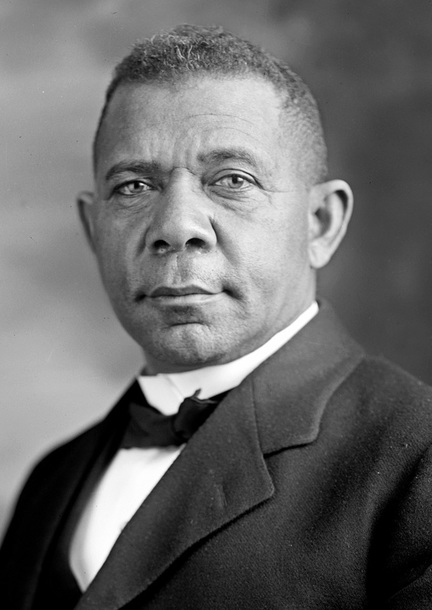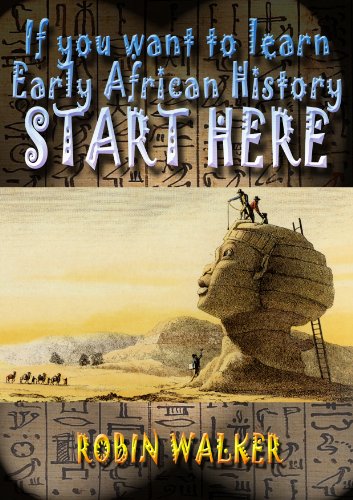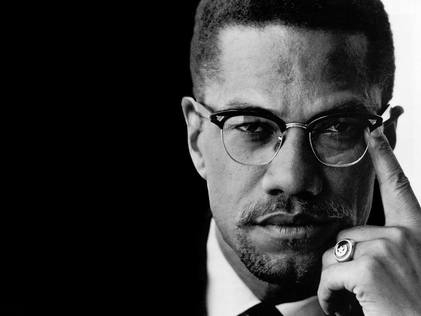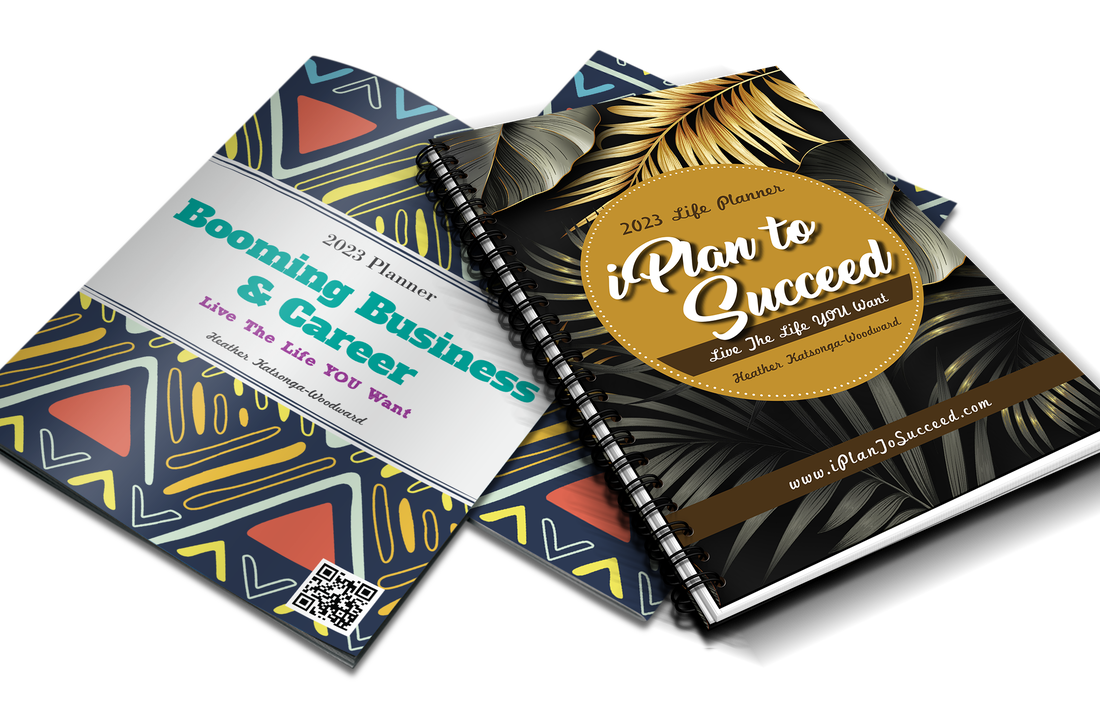 Rating: 6/5 In 32 years of being on this planet, this is by far the most fascinating book I have ever read and I read a lot. This book is a historical treasure and modern guide to business. I learnt things about race relations in the US, immediately following the abolition of slavery and it wasn't what I expected; I gained useful knowledge on how to think about education, civics, ethics, fund raising and public speaking. How so much was squeezed into one book is a real credit to Booker Washington. To read the autobiography of a man that was born in such a different time and place just gave me such a different perspective on life and especially on slavery. This book was written in 1901 by Booker Washington himself; he was born a slave but slavery was abolished before he was old enough to be too useful. That said, it was only when he was asked what games he played as a child that he realized that he could not recall any time in life when he had had a period dedicated to play. He’d always laboured to one degree or another. These sort of descriptions filled me with such a deep sense of pathos. To be honest I had tears on the tips of my bottom eyelids for most of this book not because any specific scene was horrific but because this book gave me a renewed sense of pride and dignity in African Americans and the enduring spirit of black people in general. I wish this book was recommended reading in schools; it’s so well written. Slavery is frequently talked about with a degree of shame. I hadn’t ever fully consciously thought about the nature of this shame and why it was felt until half way through the book when I started discussing its contents with a group that included some of my white friends. I realized that they were so uncomfortable about the things I was telling them that they weren’t looking me in they eye properly then it dawned on me, they feel ashamed and embarrassed by this discussion. None of the people at the table were American, I am not American, but for the first time I realized that because discussions of slavery are inevitably about white vs. black, white people, perhaps more so in Europe have a deep sense of shame that they belong to group that oppressed so many for so long. I personally think the guilt is neither productive nor necessary; it isn't all white people that oppressed black people and many helped in the fight to abolish slavery and many white people today help us in fighting against racial prejudice and injustice. History books tend to smile upon the oppressed and look down upon the oppressor, and rightly so. But this book is very clear in letting us know that the progression of negroes was very much due to huge donations, investments and advice from rich white people. Whites in the American South oppressed the minority black population as slaves from 1619 to 1865. In the book, when Booker is asked to teach a group of Indian students (who had come from India to learn English and other subjects) he is anxious as to how they will receive him because he at the time believed Indians thought themselves superior to the white man and far superior to the black man because black people had allowed themselves to be enslaved in a way that Indian people would not have. This is possibly the only line in the book I disagreed with. In addition to certain classes of Indian people being oppressed even today (e.g the untouchables, the Siddis, etc.), instances occur all the time where people oppress others even their own offspring. A recent notable example is the case in which Austrian Josef Fritzl kept his own daughter as a sex slave in the basement for 24 years! You can never blame the victim. Anyhow, I digress; here are some of the things I learnt from Up From Slavery by Booker T Washington. Many of these really warmed my heart. As a little boy Booker describes two specific instances that gave away some of his thoughts and feelings during the brief period when he lived life as a slave boy: He had no ancestry. The only elderly relative he knew was his mother. He didn’t even know when he was born except that it was in 1858 or 1859 (Wikipedia say 1856), the month and day were not known (slavery was officially abolished in 1865, just to give you a point of reference). He knew his father was a (white) slave owner from a nearby plantation but that was all, he knew no details about him and his father provided no financial or other assistance to his life. The book is quick to mention that although you might have expected black people to hate white people, in many cases it was quite the opposite. He said his owners were, for the most part, kind, decent people and, for instance, when their son was killed during the civil war there was a sense of genuine grief amongst the slaves second only to the grief felt in the big house. As a youngster the now dead young man used to reprimand his own people when they were being cruel to the slaves. Washington recounts one instance when he walked one of his young mistresses to school and saw the scene of young boys and girls learning. He says for him that scene was at the time better than his concept of paradise. He wished more than anything to be part of the learning himself. He recalls another scene when he sees his owner’s daughter eating some ginger bread and he decides there and then that if he ever reached a place in his life where he could eat ginger bread whenever he wanted just like he saw that day, then he would have reached the pinnacle of success. In the months leading up to the abolition of slavery in 1865 he recalls lots of quiet excitement amongst the negroes, this is what he calls black people throughout the book, negro or coloured. He says their singing and dancing lasted a little longer into the night as news of developments reached them via what was then called the grapevine telegraph. He said for a group who couldn’t read they stayed remarkably up to speed with all the latest developments. When they sang songs of freedom, whereas they’d previously been careful to state that they were referring to freedom in the next life they now dared to think that they would enjoy a taste of freedom in the present life. He recalls the exact events that occurred on the day slavery was abolished: He and all the other slaves were called to their masters’ house whereupon a long message was read at the end of which it was announced that they were free to do as they wished. There was inevitable joy and excitement, his mother kissed her children, but as soon as they returned to their log cabins there was a deep sense of, what now? He said most slaves left the plantation just so that they could believe that this was actually true, however, in most cases they returned and entered into paid contracts of employment with their previous slave owners. His own family left the plantation where they were slaves and went to West Virginia not long after the abolition of slavery where his stepfather had found work on a salt farm; this is when it got especially interesting for me. The place in West Virginia where they went to live was worse than the basic log cabin they’d come from because there were no rules about sewage disposal. About a third of the people in what must have been a small shanty town were the most illiterate and destitute white people Booker had ever seen. This stood out for me because you always imagine that blacks and whites were always segregated but in fact poor white people at the time also led lives that were far from comfortable. He says one of the comparative advantages black people had over white people in the South when slavery was abolished was that they had skills, lots of skills whereas the offspring of many white people in the South of America had almost none. They had never been taught things as basic as cleaning, cooking and repairing things let alone specific trades like being a blacksmith or a carpenter. Black people on the other hand had a wealth of monetizable skills. He says, and this was probably the most fascinating fact in the whole book, that some previous slave owners became so destitute that they came to rely upon their former slaves for food and money. No one ever tells you this when slavery is discussed. The two key things black people didn’t have was literacy and property ownership. Literacy was the first things most people yearned to have so day and night schools for black people quickly sprung up after 1865 containing a mixture of young and old. He discusses the hurdles he went through to get an education. Because this was his deepest desire he eventually managed to get himself into a learning institution called the Hampton. In fact, although he did so much more his initial ambition was simply to know enough to read a newspaper or a book. Before getting to Hampton he’d already learnt to read. Booker was his only name when he became a free man. Like most slaves he’d never had a last name; the first time he was asked for his name in a classroom he’d just seen that all his colleagues had two or three names so when his turn came he just said, Booker Washington, for no specific reason and the name stuck from that day. When he later learnt that his mother had actually named him Booker Taliafero at birth he added that to his name. Whilst later books suggest former slaves took on their owner’s last name Booker’s own biography from 1901 disputes this: he says they wanted to break away from that history and so chose their own names. Given he lived the times, I am inclined to believe him over other books I have read. Just prior to going to the Hampton he’d worked for a white woman who was known for being difficult and unable to hold down an employee for more than two or three weeks at a time yet he managed to work for her for 18 months during which time she became very reliant on him. He said she had most exacting standards but it was, in fact, those same standards that helped to secure his place at the Hampton. When he got there he was filthy having had to work his way to the part of Virginia where the school was located and as a sort of test he was asked to clean a room. He says he took more pride in that test than people now probably take in Harvard entrance exams. When his work was inspected, failing to find a spec of dust, it was decided he was good enough to be admitted to Hampton. One of the things that stood out to him in his time at Hampton besides the formidable man that ran it, a former general that all the students loved, admired and aimed to please, was one high status white woman that took a part in its running. Whilst he was a student there she requested he come to help her clean the school before it opened so he turned up for school two weeks early to do this. Opportunities like this were how he funded his education. His cleaning added up towards financial credit in the “accounts department”. He was astounded at why a woman of her social standing could work side by side with him, a negro boy, cleaning the school from top to bottom. He decided then that the only type of life worth living was one in which you dedicated yourself to helping others. His key mission was to bring up the status of black people but as a teacher he soon realized that a lot more had to be taught than just book learning. When he was asked to run a school in Tuskegee, he researched the surrounding areas to assess how black people were living. What he found shocked and appalled him: Most people who had been slaves for a lot longer than he had were eating a very bad diet although they had land they could farm to grow better food. I think he mentions that their diet was almost entirely pork and corn bread. This food wasn’t eaten at a table but on the go en route to work or as the children played usually without cutlery. Most people had no hygiene practices whatsoever: they did not bathe or brush their teeth. These things had to be taught in the school. Some families had bought things like an organ at $60 or a watch for $12 notwithstanding the fact that they could neither play the organ nor tell the time. And in fact, they were buying these expensive items when basics were missing. One notable time he was dining with such a family, I think they had a fine watch on display and yet when five of them sat to eat at the table there was only one fork between them. Forks cost a few cents but prioritising finances was a skill they had very little concept of; many were keen to own these objects to almost prove to themselves they had broken from the past. Most former slaves still had the whole family sleeping in one room. To explain the extent to which coloured people had been dehumanized, Booker recounts a time when he interviewed a former slave. When he asked him how many had been sold the day he had been sold the response was, “Five of us. Me, another man and three mules.” His classroom had people as old as 50 and as young as 15, everyone wanted to learn. From Tuskegee, Booker Washington grew into the formidable figure of African American history that we appreciate today. Everything about his life intrigued me but his earliest years were especially gripping. I also laughed at his differentiation of the English vs. Americans. Booker says he was fascinated at how servants in England dedicated themselves wholeheartedly to the role as they expected to specialize in the trade and hence took it very seriously where as in America the servant one day expected to become the master and hence was less consumed/dedicated to the role. He decided not to opine on which approach was better. He also said one thing he never got used in speaking to an English audience was their seriousness: things that would have an American audience roaring with laughter didn't cause the English to crack so much as a smile! Up From Slavery by Booker T Washington is available on amazon.com and amazon.co.uk.
6 Comments
 Rating: 5/5 Ask most people what they know of early African history and they will probably talk about slavery first. This book takes you away from that narrative. It reminds us of the rich cultural and academic heritage that Africans had for thousands and thousands of years before slavery was even an idea. The first half is all about classical African history the second half is a Q&A on various questions surrounding black history from African history to Black British history and touching on African American history. Robin Walker talks about the African empires that existed thousands of years before Christ and for hundreds of years after Christ and how they were on the decline long before slavery started. Two specific empires he discusses are The Songhai Empires of West Africa and the Monomotapa Empire of Eastern Africa. Apparently the biggest trade in these ancient and medieval empires was in books. Archaeologists have uncovered libraries with books in multiple languages. These African empires had trade links with Asia as early as the first century AD and built ships even all these hundred years ago. We mined steel, copper and billions of dollars worth of gold in the Monomotapa empire. Our architecture included 4 and 5 story buildings that travellers have remarked upon with great marvel in ancient texts. A specific building known as the labyrinth is believed to have been constructed in 3448 BC and was made of 3,000 apartments – 1,500 above the ground and 1,500 apartments below ground level. Excavations of Monomotapa buildings have even found toilets. It is therefore not the queen of England who was first to use a toilet. Beds have been found dating back to 3000BC. In Section 2, the Q&A, Robin Walker answers questions such as where did white people come from? Where did oriental people come from? He reminds us that current oriental feature are similar to the Khoisan people of Africa and all it would have taken to create oriental people is a touch of admixture with Europeans. The most famous Khoisan is Nelson Mandela. When I see him in my minds eye it is easy for me to imagine this to be true. He talks about how when an 8-volume book on the history of Africa was being compiled they wanted to attribute many ancient Egyptian achievements to the current Arab-like Egyptians. It was such a contentious issue that Unesco called 20 Egyptologists to debate the issue. Unfortunately 18 of the 20 were Arab or European and only two were African. You would have expected the 18 to thrash the two but the opposite happened: the two African scholars massacred the 18 with their research and evidence. These two essentially proved the blackness of the Ancient Egyptians. Apparently this is regarded as THE moment when contemporary Black scholarship really began. Egypt used to be all black but successive takeovers by the Assyrians, the Greeks, the Romans and later the Arabs led to the Middle Eastern Egyptians that we now see. Robin Walker notes that many scientific discoveries attributed to Europeans were frequently discussed in early writings by Ancient Africans. For example Charles Darwin is often attributed as being the first person to discuss natural selection but a 9th century book by a black Arab scholar called Al Jahiz discussed natural selection first. It has the unfortunate title of The Book of the Glory of the Blacks over the Whites which will have most white people in defensive mode without even considering the content. Ultimately though, For someone who just wants a flavor of Ancient African history which can be very difficult to absorb with all the dates and all the successive dynasties and the hundreds of kings and queens, this is the perfect size of book with only 100 pages. You will be left wanting to learn more about certain things but for this Robin Walker provides sources, mostly his own books, but also many names of other scholars are provided. Robin Walker importantly notes that many accomplished books of the late eighteen and early nineteenth century suffer from the problem of having a marked anti-Negro tone. One such book is A Tropical Dependency by English journalist Lady Lugard. He says it remains worth reading despite this drawback. On the other hand A History of Islam in West Africa by Prof. J Spencer Trimingham maintains a respectful tone throughout. In 2009 I took one term of Robin Walker’s Black History Studies course held in London so I know him to be a very accomplished writer on all things black history. It was through his course that I learnt the type of massive errors you will sometimes find in books. For instance, ancient travellers such as Herodotus went down the Nile and remarked upon the great structures he saw in Africa as well as the beauty of the black African people. Robin walker produced a penguin translation from the late 1900s (possibly the 1960s) and an older translation and he showed how a whole paragraph from the Greek writing had been completely removed in the Penguin books – a well-respected publication. Of course, it is such omissions of fact that help to write black people out of history. The specific paragraph removed highlighted the physical features of the people Herodotus saw – distinctly black feature; unfortunately for those who wanted the narrative to agree with previously published anti-negro writings that had us down as uncivilized and of poor literacy levels they could include the paragraph. Overall, this book is a good starting point for anyone that wants to know more about black history as presented in a more balanced context. If You Want To Learn Early African History Start Here by Robin Walker is available on amazon.com and amazon.co.uk.  Rating: 5/5 It wasn’t until I read this book that I appreciated what the X in Malcolm X means. Malcolm was born in May 1925 to Earl and Louise Little. His mother was born in Grenada and was in fact very well educated. At the time of his birth slavery had been abolished 60 years previously but America remained a deeply divided and segregated society. He grew up at a time when the segregation of black and white children in schools had been made illegal yet he was the only black boy in his school. Most other forms of segregation e.g. blacks sitting at the back in a bus were still “legal”. Even then he was keenly aware that he was not allowed to pay any special attention to the white girls in his class. He ended up being raised an orphan because his father was murdered when he was only six. By this time Malcolm had already seen and heard a lot of his dad’s preaching re. pan Africanism inspired by Marcus Garvey. His father was himself an activist and although listed in the directory as “a labourer” he was a great speaker, preacher and much respected in the black community. A house the Little family had bought was burnt to the ground when Malcolm was a toddler because some white neighbours weren’t happy with having black people move into the neighbourhood; they argued that the house could not be legally owned by a non-Caucasian. After her husband's death Malcolm’s mother struggled to support her seven children and by the time Malcolm was 13 she was sent to a mental health institution after a breakdown. He grew up in a series of foster homes after that. Despite her fine education his mother couldn't get a decent job and after a hard day's work as a cleaner barely made 50 cents when white cleaners were getting $5 or $6 a week at the time. Malcolm was an intelligent boy and did very well at school, however, when a teacher asked him what he wanted to be and he said a lawyer he was told to be realistic. Lawyer, "wasn’t a realistic ambition for a nigger", he was told, he should think about carpentry and other handy trades. This discouraged him. He decided that if he couldn’t be a lawyer then school wasn’t worth it. He dropped out and went to live in New York with his half-sister Ella. From age 14 to 21 he lived the life of a city boy: he relaxed his hair into a conk using a highly corrosive mixture of lye, potatoes and eggs. He bought a zuit suit. The conk and zuit suit were essentially the “in thing” for a rebellious young boy at the time. He got involved in petty robberies and this eventually got him sent to prison were stayed for almost seven years. In prison he converted to Islam and joined a group called Nation of Islam; they were an extremist Islamic group of the time. Upon joining the Nation of Islam one took on the last name X and if someone else in your mosque had the same first name you were “christened” 2X or 3X etc. This is how he became Malcolm X. A new surname was required because you were breaking from your slave past. Last names were typically taken from a former slave owner because at the time slavery was abolished most black people didn’t have a last name. It made sense to take on the previous owner’s name so that any relatives that had been sold to other plantations could find you. I am now not sure how true this is because Booker T Washington’s autobiography states that former slaves typically didn’t take on their owner’s name because they wanted to break from that past. Hopefully this will become more clear with further reading. Over time Malcolm X who grew to be one of the key leaders in the Nation of Islam broke away from the group. His views became more pan African and he decided to fight for improved rights in a more inclusive way. Nation of Islam excluded all other groups including other African American groups and societies from its own fight for black rights. On his Hajj to Mecca Malcolm X also travelled to Europe and Africa meeting the likes of President Kwame Nkrumah of Ghana and Jomo Kenyatta of Kenya. These and other African leaders helped him to mount pressure on the US to end segregation in America. He met Betty X as a member of Nation of Islam. They married and had four children before he was murdered by members of Nation of Islam who didn’t like that he’d left the group and essentially no longer believed what they believed. Harlem Harlem was initially introduced to me through rap songs by Puff Daddy and Mase; until now I didn’t appreciate what a significant place it was from a historical perspective until I read this book. Harlem was not by any standards a nice place to live even in Malcolm X’s time but because black people were prevented from owning property and living in more well off neighbourhoods professionals such as black doctors and lawyers and important people in the civil rights movement lived here or stayed in a hotel in Harlem at one time or another. Notably, when Fidel Castro came to the US he stayed in Harlem to many people’s surprise and was so impressed by Malcolm X he invited him to visit Cuba. The End Malcolm X died just shy of his 40th birthday in 1965. He is now well known and accepted as one of the biggest leaders in the civil rights movement and that is why I chose this as one of my first books on African American history. Malcolm X – By Any Means Necessary is available on amazon.com and amazon.co.uk. |
Heather Katsonga-WoodwardTime allowing, I love to read. If I read anything interesting, I will blog about it here. 2019 Life and Career PlannerCategories
All
Archives
January 2019
|
Heather Katsonga-Woodward, a massive personal finance fanatic.
** All views expressed are my own and not those of any employer, past or present. ** Please get professional advice before re-arranging your personal finances.
 RSS Feed
RSS Feed




